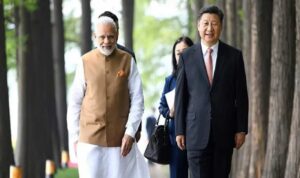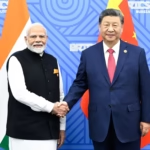
This year’s Shanghai Cooperation Organization (SCO) Summit in Tianjin, China is set to be the largest in the bloc’s history, drawing leaders from more than twenty countries and numerous international organizations as global tensions rise amid trade disputes and geopolitical upheaval .
Historic Arrivals and High-Level Delegations
Indian Prime Minister Narendra Modi’s arrival marks his first visit to China since 2018, ending years of diplomatic chill following the Galwan Valley clashes in 2020 . Nepal’s Prime Minister KP Sharma Oli has landed with a 23-member delegation, ready for his second official China visit since July 2024. Chinese President Xi Jinping has already begun welcoming participants, including heads of state from SCO’s ten member countries such as Russia, Belarus, and Iran .
Diplomatic Stakes: Bilateral and Multilateral Meetings
The summit unfolds at a critical time for India, which is facing hefty tariffs from President Trump’s administration and seeking closer Eurasian ties . Prime Minister Modi will meet Chinese President Xi Jinping and Russian President Vladimir Putin for the first substantive discussions in years, aiming to address major trade and security concerns. PM Oli prepares for meetings with Putin, the leaders of Cambodia, Laos, Vietnam, and Maldives, while both leaders participate in commemorative events marking WWII’s 80th anniversary .
Summit Significance: A New Stage in Multilateralism
Chinese officials describe the 2025 Tianjin meeting as a turning point for global governance—spearheading initiatives for economic integration, digital collaboration, and regional security . The SCO’s expansion now represents 42% of the world’s population and 23% of global GDP, with a focus on countering Western unilateralism through proposals for a Development Bank, local currency clearance, and a new energy roadmap .
Future Directions for the SCO
The summit will formalize Belarus’s membership and explore new partnerships as the bloc evolves into a comprehensive regional institution. Key outcome documents will steer strategy for the next decade, with emphasis on security, economic growth, and people-to-people cooperation—all while member states position themselves in a rapidly shifting multipolar world







